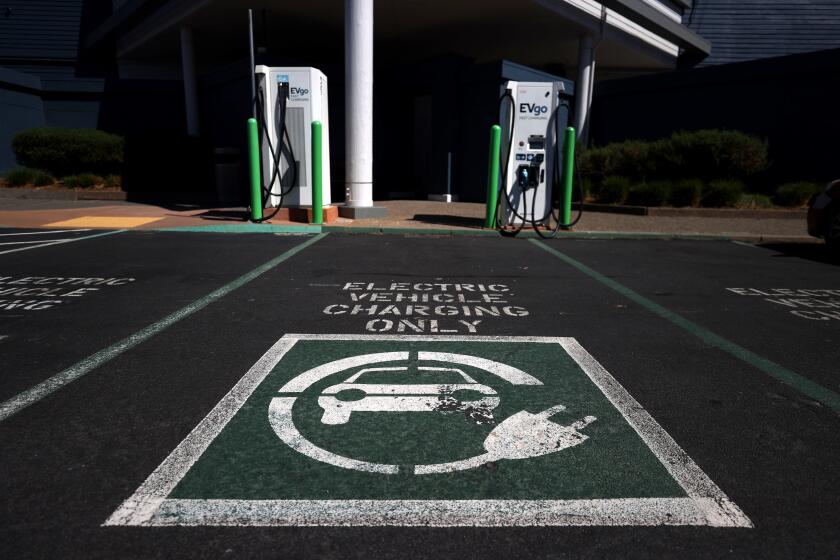Bailed-out firms begin posting limits on luxuries
Chrysler Financial employees traveling on business can no longer be reimbursed for lunch on trips that don’t require an overnight stay. If flying on business, they must travel coach if the flight is less than four hours. Tips to baggage handlers shouldn’t exceed $2 per bag. The $4 cost of an in-flight movie? Not reimbursable.
The company’s new expense rules, posted on its website Friday, are among a handful of policies that have been made public so far as hundreds of companies receiving federal rescue funds scramble to meet a deadline Monday to put in place policies on “excessive or luxury expenditures.”
Under rules issued by the Treasury Department in June, the boards of companies receiving federal assistance must adopt policies on luxury expenditures -- including entertainment, office renovations and air travel -- and make them available online.
The requirement was part of the new restrictions on executive compensation in the $787-billion stimulus bill signed into law by President Obama in February at the peak of an outcry over billions in bonuses paid to executives at companies that received taxpayer assistance.
In January, Merrill Lynch & Co.’s then-chief executive, John Thain, was pilloried for having spent $1.2 million to renovate his office, including $87,000 for an area rug. Northern Trust Corp. was sharply criticized for sponsoring a golf tournament with lavish side events. Detroit auto executives received a scolding from lawmakers for flying private jets to a hearing in Washington.
The law largely does not dictate the content of the spending policies but does say prohibited expenses and those needing prior approval must be identified.
The policies released so far vary greatly. While some are barely a page long, Chrysler Financial, the former lending arm of the automaker Chrysler, went to great lengths to define acceptable spending.
Of the other six companies under the greatest government scrutiny after receiving multiple infusions of taxpayer funds -- Bank of America Corp., Citigroup Inc., American International Group Inc., Chrysler, General Motors Co. and GMAC -- only Bank of America had made its policy available as of Friday.
Chrysler Financial details what type of rental car an employee should drive while on a business trip (a mid-size), how to calculate reimbursable gas mileage on trips combining business and pleasure, and the circumstances under which it is permissible to use the phone in one’s hotel room.
The 15-page policy comes with two appendixes, one listing “unallowable” expenses (country club fees, hotel frequent-guest programs, birthday cakes and cards, shoeshines) and limits on tips (up to 20% of the total bill, excluding tax, for room service, up to $2 for buffet dining, $5 for a doorman, no tip for a concierge).
Bank of America’s policy is much less detailed. Regarding events, the bank says location, venue, food selections and entertainment are determined based on an event’s revenue-generating potential, among other factors. On office renovations, the policy defines as excessive any materials that are “unreasonably above and beyond standard.” Reviews for exceptions, the policy says, “could potentially be escalated to senior management for approval.”
Among other companies, some policies are simple. Carver Bancorp, a community bank in New York, says simply that the company’s directors and employees are “precluded from engaging in excessive or luxury expenditures” and that employees who engage in spending deemed “extravagant” by the compensation committee will be subject to discipline.
A Carver spokesman said that the bank’s policy complied with the spirit and letter of the requirements and that its expenses, as a small community bank, were limited by necessity.
Others have set ceilings on certain expenditures. According to the four-page policy provided by New Orleans-based Whitney National Bank, a top executive must approve in advance any meeting, event or certain type of travel that exceeds $10,000. Such expenditures exceeding $25,000 must be accompanied by a report making a business case for the expense. Whitney has received $300 million in taxpayer funds.
The luxury-expense policy of NBRS Financial, a Maryland community bank, dictates that holiday parties should be held locally and should not cost the company more than an average day’s pay per employee.



